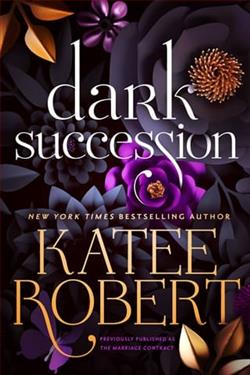Page 1 of Rainshadow
1
The sprawling, bucolic farm on Anderson Island sat empty, decaying for years before there were whispers of a buyer. Flora tried to ignore them.
The subject was so painful. For almost ten years, Lavender Acres had been her happy place, her respite, her home away from home. What had started as weekly horseback riding lessons when she was eleven became her whole life, days spent cleaning stalls, polishing leather and brass in the tack room, even helping with the lavender harvest, working the roadside stand where Lisa sold bundled sprigs of the fragrant purple flower, infused oils, soaps, and closet sachets.
Flora had come to the farm on a field trip and had loved the horses, loved the charming gardens and the dramatic way the farm ended in a jagged cliffside that tumbled into the sea. More than the other children, she had lingered by their stalls, pressing her hand to their warm, velvet muzzles and whispering to them as they gazed at her with their huge dark eyes. Lisa had watched, then taken her by the hand and invited her into a stall.
“Here,” Lisa had said. “You can sit on her for a minute. She’s a good girl. She’ll let you sit up there all day long.”
The stall had smelled like fresh hay and the warm, earthy scent of the horse. When Lisa helped Flora back down, Flora had the distinct feeling of wanting to cry. The horse, solid and gentle, had soothed the jitter of anxiety she often felt skittering just under the surface of her skin. She wanted more of that calm, connected feeling.
Lisa had invited Flora to come back anytime. Flora couldn’t believe it. No one had ever noticed her before. She was quiet and small for her age, with mouse-colored hair and an unremarkable face, neither ugly nor beautiful. She did fine in school, not well enough to be praised or poorly enough to be in any trouble.
Maureen, Flora’s mother, had insisted she couldn’t afford horseback riding lessons, but agreed to take Flora out to meet with Lisa anyway. Maureen never passed on the opportunity to go to a rich person’s house. They had a car at that time, and drove together up the winding, cheerful driveway, flanked by lavender plants, and met with Lisa in her charming, shabby-chic living room, with its floral fabrics on the sofa, lace on the curtains, and a mason jar of fresh flowers on every surface.
“I would love to give Flora lessons if she can help me out with a few chores,” Lisa explained to Maureen. “I don’t do this for money. I’m retired. I need help more than anything.”
Maureen had looked at Lisa with narrow-eyed scrutiny. Lisa didn’t fit Maureen’s idea of what a rich person should be like, with her frayed barn coat and graying, undyed hair cut short in a bob and tucked neatly behind her ear. Maureen wore long, glittering beaded earrings and a silky, fluttery top in chartreuse. She crossed and uncrossed her long legs in their tight jeans and continuously brushed back her mane of bleached curls. Flora felt a vague embarrassment that she couldn’t explain. She had always thought her mother was beautiful and glamorous, but now, in front of Lisa, she wasn’t so sure. Lisa was exceedinglykind and polite, assuring Maureen once again that if Flora helped on the farm, her lessons would be free.
“Nothing is really for free,” Maureen said to Flora as they walked back to the car. “She’s either going to work you just like one of her horses, or there’s something else she wants from you.”
Two days later, Flora showed up for her first lesson. She was shaking with nerves right up until the moment when she climbed onto the back of the horse, in the covered, heated riding arena, Lisa holding the reins. Once in the saddle, a shimmering, wonderful calm fell upon her. There was something sturdy and solid about being on a horse, something that made the chaos of life, the anxiety of her home life, slip away. Flora picked up the reins and, at Lisa’s direction, pressed her heels into the horse’s flank.
“Good girl,” Lisa said, her voice calm and soothing.
A year later, Flora was able to jump and had begun dressage training. She adopted the uniform she would wear every day, a snug pair of Levi’s, used combat boots, and a plaid flannel shirt worn unbuttoned over a faded black T-shirt. After two years, Flora was giving lessons to beginners, helping little girls into the saddle the same way she had once been helped. Her confidence with the horses grew. She was as familiar a presence to the other equestrians as Lisa or Bob, Lisa’s husband, who loved sailing much more than horseback riding and kept a boat in the Anderson Island marina.
For three years, Flora came to the farm almost every day. She was supposed to take Sundays off, but Lisa had come to understand that staying home was harder for Flora than mucking stalls and hauling bales of hay. Flora would show up, even on her days off, and Lisa would leave her to her endless list of barn chores and garden tasks, never asking why she couldn’tjust stay home, never once making her feel like she was being annoying, clingy, or needy.
On those easy Sundays, she would take a horse on a ride throughout the property, along the rocky cliffside over the crashing sea, across the fields around Lavender Acres, into the little wood with the empty stream bed that formed a tiny gully, like a miniature canyon on the forest floor. The horses could barely see it, and she liked hopping over it, then through the copse of trees, like a fairy glen.
When Flora imagined her life, her future, she imagined herself at Lavender Acres. She had a recurring fantasy that Lisa might invite her to come live there as Lisa and Bob got older. She imagined Lisa taking her hand and saying, “Lavender Acres is yours now. You deserve it.”
And then Bob got lung cancer.
The farm had been put up for sale within days, and the horses were sold one by one, often to horse brokers who would sell them to anyone, unconcerned for their welfare. Anything of value, like equipment and machinery, was sold. Lisa was barely there, always flying to Seattle on a seaplane with her sick husband. When she was at the farm, she was distracted, bleary-eyed, and completely overwhelmed.
She looked at Flora like she was a stranger, and for the very first time asked Flora what she was doing there.
“I’m here to help,” Flora said, feeling her heart tighten.
“I’m sorry, Flora,” Lisa said, shaking her head. “There’s nothing left for you to do.”
Flora walked home in the fall drizzle, choking on sobs. She felt like she had lost everything, and when she imagined her little fantasies of one day owning Lavender Acres, she felt a deep, saturating embarrassment. She had been such a fool to imagine she had some ownership of the farm, the horses.
She stumbled home and into her little bunk, where she cried relentlessly.
“You wasted your time there anyway, working for free,” Maureen had said. “Now you can get a real job.”
Flora wasn’t sure Maureen knew anything about real jobs.
Ever since Flora could remember, her mother had worked only sporadically—yoga teacher, tarot card reader, pet sitter, housekeeper. She was always looking for that perfect gig that wouldn’t force her to keep a schedule or have too much responsibility. Maureen insisted that the universe would provide if she only opened her heart to its abundance. The universe’s abundance came, mostly, in the form of government assistance. Despite her apparent belief in the universe’s benevolence, Maureen fretted about money constantly, and would do almost anything for it but get a job.
They lived in a converted school bus, but it wasn’t as bad as many people suspected. Painted a cheerful robin’s-egg blue and outfitted with a cozy kitchen, two bunk rooms, and a wood stove, their rare visitors were always surprised to find just how comfortably Maureen and Flora lived. Her mother had come to the island to live off-grid and built the bus with the help of a man who might have been Flora’s father. Maureen didn’t like talking about that time in her life.
The bus wasn’t that bad, but it could still be a hard place to spend a long day, especially in the winter. Maureen, who could be fun, cruel, frantic, or so depressed she could barely function, was reliably unreliable, so Flora avoided being home as much as possible. Lavender Acres, then, had been vital to her, and she wasn’t sure she would have graduated high school if she hadn’t had a place to go where she could have calm and quiet.
Bob got cancer the same year Flora graduated.















